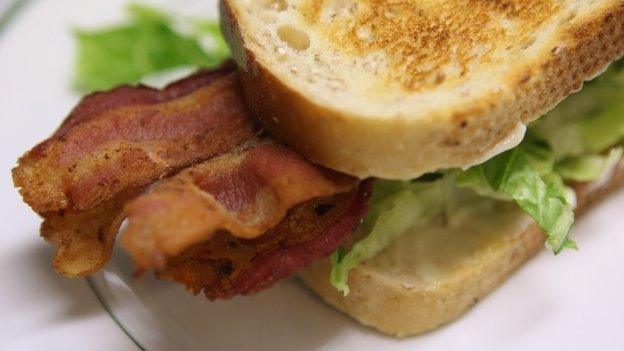Could lab-grown meat be the future of food?
- Published
- comments
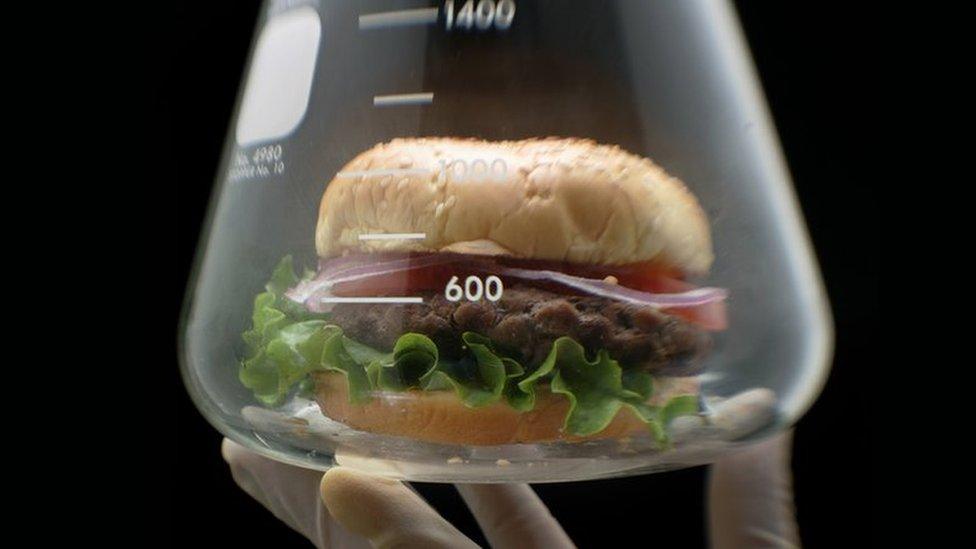
The UK should start producing lab-grown meat to help solve the world's food crisis, according to a research group.
A report by the Adam Smith Institute says meat made by scientists in a laboratory is better for the environment, animal welfare and would be cheaper than meat produced from farm animals.
It comes as demand for meat around the world is expected to increase by 70% by the year 2050.
So could people be eating lab-grown meat in the future? Read on to find out.
What is lab-grown meat and how is it made?
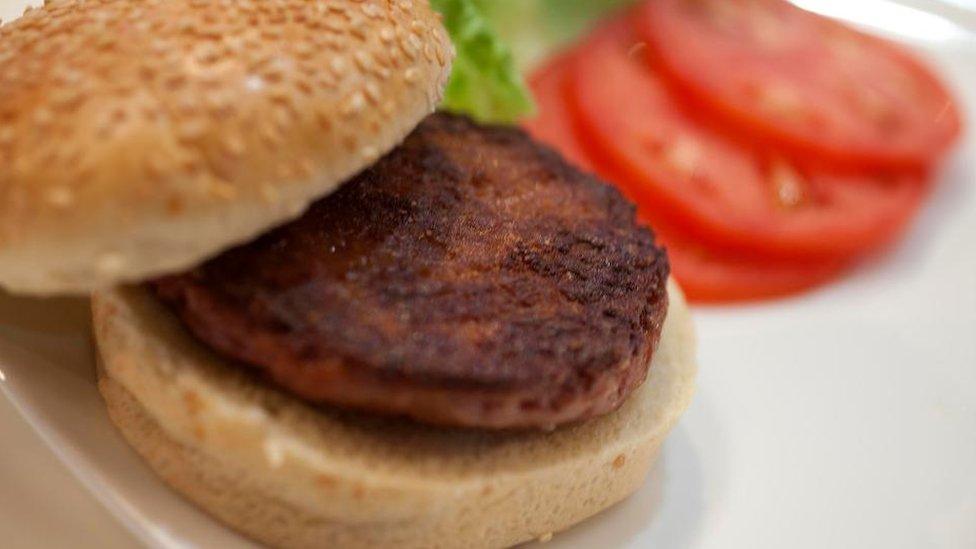
A lab-grown beef burger now costs £8 - that's down from £200,000 just five years ago
Usually animals like cows are killed to produce the meat that people eat, but scientists have found a way to make meat in a laboratory without killing any animals.
Animals are made up of stem cells, which form special tissue like nerve or skin cells.
Scientists worked out how to take cells from an animal - like a cow- and multiply them in a special container called a Petri dish.
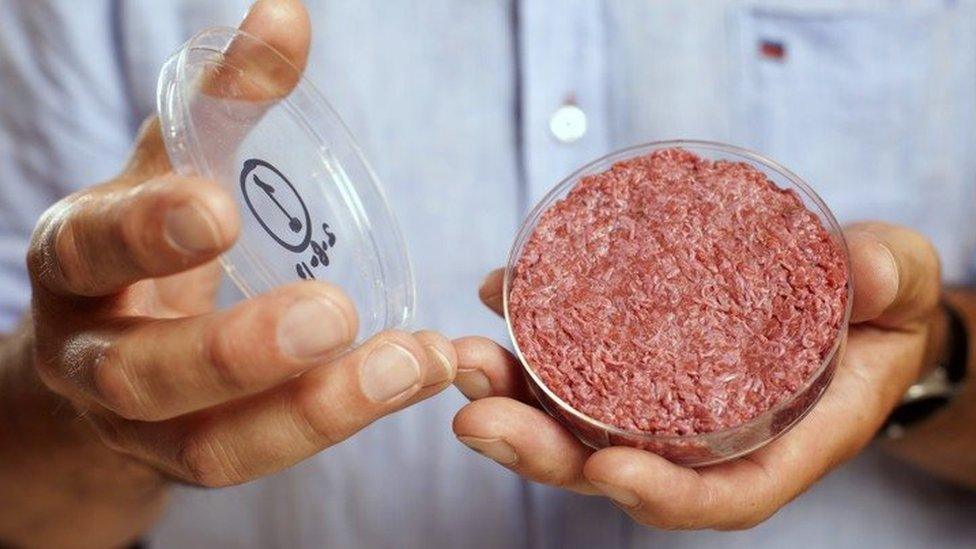
This is the world's first lab-grown beef burger in 2013 made in a Petri dish
Eventually from one tiny muscle cell, tens of billions of cells can be grown. These join together to form muscle tissue.
Lots of strands of muscle tissue together can form 'meat'.
In 2013, the first burger grown this way was eaten in London. It took a year to produce and cost over £200,000 to make.
What does it taste like?
Dr Mark Post, who created the world's first burger from meat grown in a lab, told the BBC it "tastes exactly the same as the meat we know because it's exactly the same tissue".
When two food critics tried the burger in 2013, one said it was "close to meat, but not that juicy" and another said it tasted like a real burger.
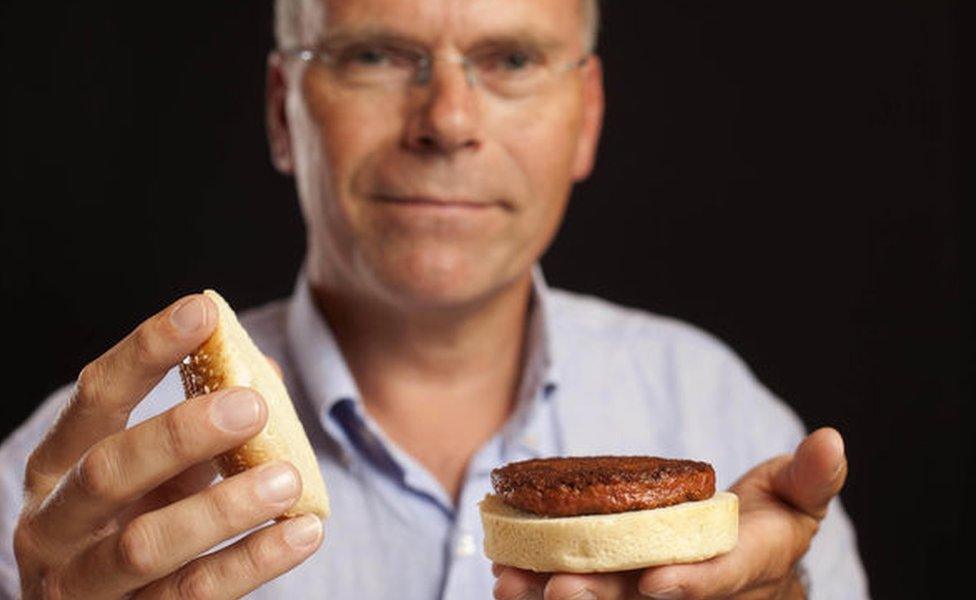
Dr Post helped make the first lab-grown burger, which had beetroot juice added to get the right colour
Dr Post says it doesn't taste juicy because it needs fat adding.
It's not just beef that is being created, companies are also working on other meat like turkey and chicken.
Why do some people think it's the food of the future?
The Adam Smith Institute says moving away from the current way meat is produced would help reduce greenhouse emissions by up to 96% and free up 99% of the land used in farming worldwide.
They also think it will reduce cases of food poisoning because the meat is grown under such controlled conditions.
Jamie Hollywood from the Adam Smith Institute also told the BBC lab-grown meat could be a lot cheaper.
He says the price has gone down in five years from £200,000 to £8 so in the future it could be even less.
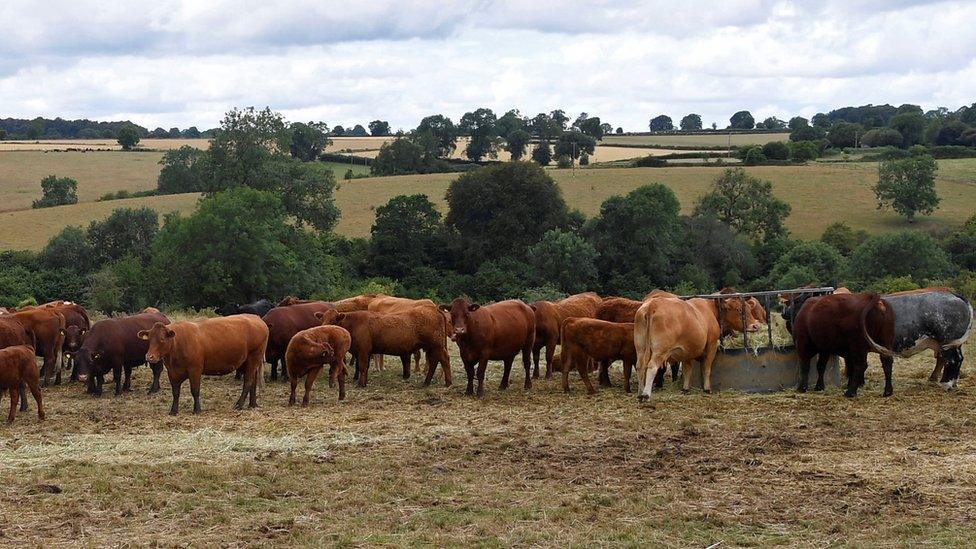
Some people say it takes too much land to keep cattle like these for meat
The plan for lab-grown burgers has won support from some animal welfare groups, who think it could stop animal suffering.
Critics say lab-grown meat is not the way to solve world hunger. What is needed, they say, are policies that allow farmers to produce more food more efficiently.
A lot of people also say meat grown will never taste as good as that from an animal.
Should it be called meat?
A company in the United States, which is making lab-grown meat or 'clean meat' as they call it, says people will be able to eat it in American restaurants by the end of 2018.
There is no date for it to be available in the UK yet.
But should a burger or a chicken nugget, which has been grown in a lab, be called meat?
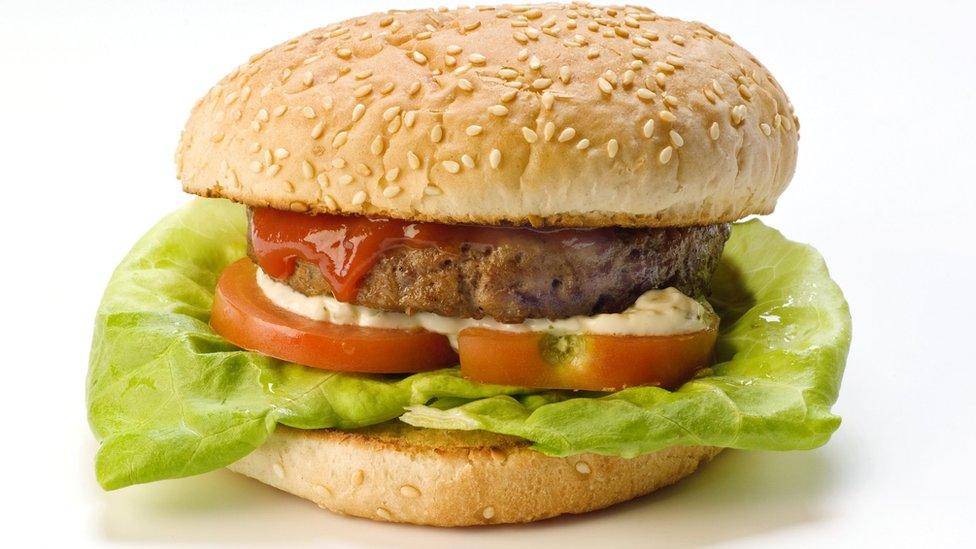
This is a hamburger made out of beef made from a cow - and not from the lab
Dr Post thinks it should be called meat because he says "it is meat".
But the Meat Processors Association, which represents the meat industry, disagrees.
Meanwhile, in the United States on 28 August, Missouri became the first state to pass a law banning companies from "misrepresenting a product as meat that is not derived from harvested production livestock or poultry."
Would you eat it or does it sound too weird? Let us know what you think about lab-grown meat in the comments.
- Published13 April 2016
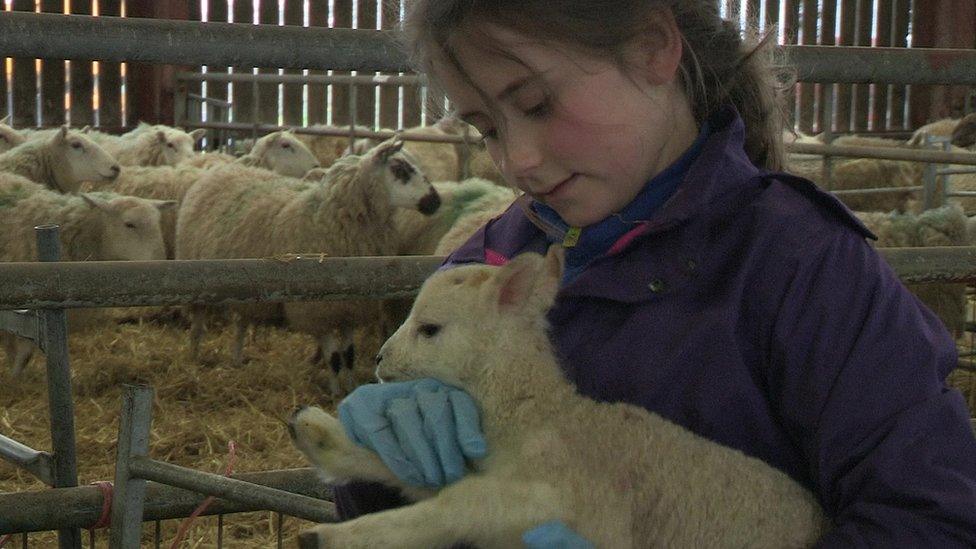
- Published1 September 2014
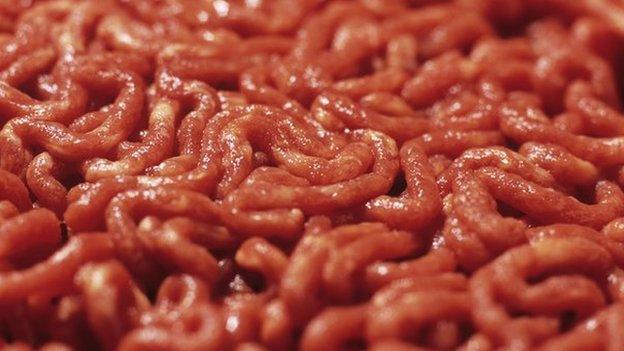
- Published5 January 2021

- Published7 March 2013
